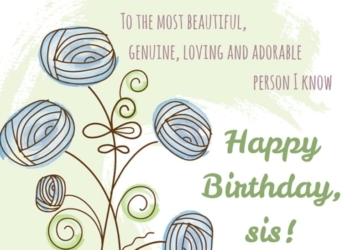Diwali, also known as Deepavali, is one of the most popular and joyous festivals in India and around the world. It is a celebration of light, prosperity, and victory over evil. It is also a time to express gratitude, share happiness, and strengthen bonds with family and friends. I have been celebrating Diwali for many years and I have learned a lot about its history, significance, and traditions. In this blog post, I will share with you some of the best ways to celebrate Diwali in 2023 and make it a memorable occasion for yourself and your loved ones.
The best way to celebrate Diwali in 2023 is to follow the five-day festival schedule, perform the rituals and customs associated with each day, decorate your home and surroundings with lights and colors, exchange gifts and sweets with your near and dear ones, enjoy the fireworks and cultural events, and spread the message of peace and harmony. Diwali is not just a one-day affair, but a series of festivities that span over five days. Each day has its own significance and rituals that add to the overall spirit of Diwali. Here is a brief overview of the five days of Diwali in 2023 and how to celebrate them.

The History of Diwali
Diwali has been celebrated for centuries, though its exact origins are unknown. The festival is mentioned in ancient Hindu texts, such as the Mahabharata and the Ramayana, and is believed to have been first celebrated in the Indian subcontinent. Diwali is also mentioned in some Jain texts and Sikh scriptures.
Diwali is thought to have originated as a harvest festival, celebrated by Hindus to mark the end of the harvest season. The festival may also have been influenced by the Hindu festival of Durga Puja, which celebrates the victory of the goddess Durga over the demon Mahishasura.
Diwali is first mentioned in the Hindu epic the Mahabharata, which tells the story of a battle between two branches of a royal family. The Pandavas, who were the good guys in the story, were exiled from their kingdom for 13 years. They returned home on the day of Diwali and were victorious in the battle that ensued.
The Ramayana, another Hindu epic, tells the story of Rama, who was exiled from his kingdom for 14 years. He, too, returned home on the day of Diwali and was victorious in the battle that ensued.
Diwali is also mentioned in some Jain texts and Sikh scriptures.
Day 1: Dhanteras – Friday, November 10th
Dhanteras marks the beginning of Diwali celebrations. It is also known as Dhantrayodashi or Dhanvantari Trayodashi. It is a day dedicated to wealth, health, and prosperity. On this day, people worship Goddess Lakshmi, the goddess of wealth, and Lord Dhanvantari, the god of health. They also buy gold, silver, or new utensils as a symbol of good luck and fortune. Some of the ways to celebrate Dhanteras are:
- Clean your home thoroughly and make it ready for Diwali.
- Draw rangoli designs at the entrance of your home or office using colorful powders or flowers.
- Light diyas (earthen lamps) or candles in every corner of your home or office.
- Offer prayers to Goddess Lakshmi and Lord Dhanvantari in the evening.
- Chant mantras or sing bhajans (devotional songs) in praise of the deities.
- Donate money, food, or clothes to the needy or poor.
- Shop for gold, silver, or new utensils as per your budget and preference.
Day 2: Choti Diwali – Saturday, November 11th
Choti Diwali, also known as Naraka Chaturdashi or Kali Chaudas, is the second day of Diwali celebrations. It commemorates the victory of Lord Krishna over the demon king Narakasura who had imprisoned many innocent people. It is also a day to honor Goddess Kali who is believed to have destroyed evil forces on this day. Some of the ways to celebrate Choti Diwali are:
- Wake up early in the morning and take a bath with oil and fragrant herbs.
- Apply kumkum (red vermilion) or tilak (sacred mark) on your forehead.
- Wear new or clean clothes and adorn yourself with jewelry or accessories.
- Prepare delicious dishes such as kheer (rice pudding), halwa (sweet dish), puri (fried bread), or pakora (fritters).
- Offer prayers to Lord Krishna and Goddess Kali in the morning or evening.
- Light more diyas or candles in your home or office.
- Burst crackers or fireworks with caution and care.
Day 3: Diwali – Sunday, November 12th
Diwali is the main day of the festival of lights. It falls on the new moon day (Amavasya) of the Hindu month of Kartik. It is also known as Lakshmi Puja or Deepavali Puja. It is a day to worship Goddess Lakshmi who bestows wealth, happiness, and prosperity. It is also a day to celebrate the return of Lord Rama to Ayodhya after defeating Ravana in the epic Ramayana. Some of the ways to celebrate Diwali are:
- Decorate your home or office with colorful lights, lanterns, streamers, balloons, or banners.
- Make a special altar for Goddess Lakshmi in your home or office.
- Place idols or pictures of Goddess Lakshmi and Lord Ganesha on the altar.
- Offer flowers, fruits, sweets, incense, and coins to the deities.
- Perform the Lakshmi Puja in the evening with your family and friends.
- Recite the Lakshmi Aarti (hymn) or the Lakshmi Ashtottara Shatanamavali (108 names of Lakshmi).
- Exchange gifts and sweets with your near and dear ones.
- Enjoy the fireworks and cultural events in your locality or city.
Day 4: Govardhan Puja – Monday, November 13th
Govardhan Puja, also known as Annakut or Bali Pratipada, is the fourth day of Diwali celebrations. It is a day to worship Lord Krishna who lifted the Govardhan hill to protect the people of Vrindavan from the wrath of Lord Indra. It is also a day to celebrate the coronation of King Bali who was defeated by Lord Vishnu in his Vamana avatar. Some of the ways to celebrate Govardhan Puja are:
- Make a small mound of cow dung or mud and decorate it with flowers and leaves.
- Place an idol or picture of Lord Krishna on top of the mound.
- Offer various food items such as rice, dal, roti, sabzi, sweets, or fruits to the mound.
- Perform the Govardhan Puja in the morning or afternoon.
- Sing or dance in praise of Lord Krishna and his miracles.
- Observe a fast or eat only vegetarian food on this day.
- Visit a temple or a cow shelter and feed the cows or donate money for their welfare.
Day 5: Bhai Dooj – Tuesday, November 14th
Bhai Dooj, also known as Bhaiya Dooj, Bhai Tika, or Yama Dwitiya, is the fifth and final day of Diwali celebrations. It is a day to celebrate the bond between brothers and sisters. It is also a day to honor Lord Yama, the god of death, who visited his sister Yami on this day and blessed her with immortality. Some of the ways to celebrate Bhai Dooj are:
- Meet your brother or sister in person or virtually and express your love and affection for them.
- Apply kumkum or tilak on your brother’s forehead and offer him sweets or gifts.
- Receive blessings and gifts from your brother in return.
- Perform the Bhai Dooj Puja in the afternoon or evening.
- Tell stories or share memories of your childhood with your sibling.
- Play games or indulge in fun activities with your sibling.
Diwali is a festival that brings joy, hope, and positivity to everyone. It is a festival that reminds us of our values, culture, and traditions. It is a festival that inspires us to overcome darkness with light, ignorance with knowledge, and evil with good. I hope you have learned something new from this blog post and you are ready to celebrate Diwali in 2023 with enthusiasm and excitement. I wish you all a very happy and prosperous Diwali!
Conclusion
Diwali is more than just a festival of lights. It is a festival of life. It is a festival that teaches us to be grateful, generous, and compassionate. It is a festival that encourages us to be creative, innovative, and festive. It is a festival that connects us with our family, friends, and community. It is a festival that fills our hearts with joy, peace, and harmony.
I hope you have enjoyed reading this blog post and you have found some useful tips and ideas on how to celebrate Diwali in 2023. If you have any questions or feedback, please feel free to leave a comment below. And if you liked this blog post, please share it with your friends and family who might also be interested in celebrating Diwali in 2023.
FAQ
- Q: What is the significance of diwali?
- A: Diwali is a time to honor various gods and goddesses, depending on the region and tradition. The most common deity worshipped during diwali is Lakshmi, the goddess of wealth and prosperity. Other deities include Ganesha, the elephant-headed god of success; Kali, the fierce goddess of power; and Rama, the hero of the epic Ramayana. Diwali also marks the beginning of a new year for many communities.
- Q: How is diwali celebrated?
- A: Diwali is celebrated over five days, each with its own rituals and customs. The first day is Dhanteras, when people buy gold, silver, or new utensils as a sign of good luck. The second day is Naraka Chaturdashi or Choti Diwali, when people light diyas (oil lamps) and candles to ward off evil spirits. The third day is the main day of diwali, when people perform puja (worship) to Lakshmi and Ganesha, exchange gifts and sweets, and enjoy fireworks and crackers. The fourth day is Govardhan Puja or Padwa, when people thank the gods for their blessings and celebrate the bond between husband and wife. The fifth day is Bhai Dooj or Bhaiya Dooj, when sisters pray for their brothers’ well-being and receive gifts from them.
- Q: What are some popular diwali dishes?
- A: Diwali is a feast for the senses, especially for the taste buds. Some of the popular diwali dishes are:
- Sweets: ladoo (round balls of flour and sugar), barfi (fudge-like confection), kheer (rice pudding), halwa (semolina pudding), jalebi (deep-fried pretzels in syrup), rasgulla (cheese balls in sugar syrup), etc.
- Savories: samosa (triangular pastries with potato filling), kachori (fried dough balls with lentil filling), chaat (spicy snack mix), pakora (fritters), chakli (crispy spirals), namak para (diamond-shaped crackers), etc.
- Main course: biryani (rice dish with meat or vegetables), dal makhani (creamy lentil curry), paneer butter masala (cottage cheese in tomato gravy), aloo gobi (potato and cauliflower curry), palak paneer (spinach and cottage cheese curry), naan (flatbread), paratha (stuffed flatbread), etc.
- Q: What are some diwali gifts ideas?
- A: Diwali is a time to express love and gratitude to your family and friends. Some of the diwali gifts ideas are:
- Home decor: diyas, candles, lanterns, rangoli (colorful patterns made on the floor), torans (door hangings), wall art, etc.
- Jewelry: earrings, necklaces, bracelets, rings, etc. made of gold, silver, or other metals and stones.
- Electronics: smartphones, tablets, laptops, cameras, headphones, speakers, etc.
- Kitchen appliances: mixer grinder, juicer, toaster, coffee maker, air fryer, etc.
- Ethnic wear: kurta pajama (long shirt and pants), saree (draped cloth), lehenga choli (skirt and blouse), salwar kameez (tunic and trousers), etc.
I hope this information is helpful for you. Happy Diwali! 🎆🎇🪔



















